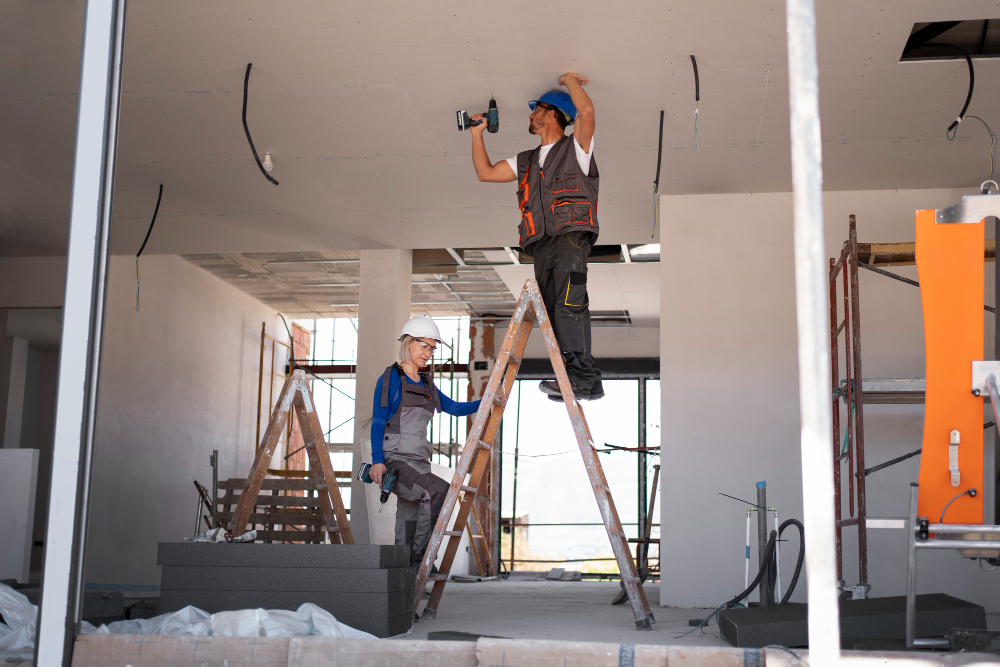Can You Claim Interest on Vacant Land and New Construction?
At Investax, many of our clients ask whether they can claim tax deductions on interest when purchasing vacant land, building a new house, or knocking down and rebuilding an investment property. The rules around this can be complex, especially with recent changes to tax laws. In this article, we’ll break down the key rules outlined in the ATO’s Tax Ruling TR 2021/D5, using real examples to show how these apply to common situations. Specifically, we’ll focus on two scenarios: purchasing vacant land to build an investment property and buying an existing property to knock down and rebuild. Our goal is to provide clear, practical insights to help you navigate the complexities of claiming interest on vacant land and construction.

Can You Claim Interest on Vacant Land?
From 1 July 2019, the Australian Taxation Office (ATO) introduced limitations on deductions for losses or outgoings related to holding vacant land. Under tax law changes from 1 July 2019, you generally can’t claim deductions for holding land that doesn’t have a usable building on it. This includes interest and borrowing costs to acquire the land, as well as expenses like council rates, land taxes, and maintenance costs.
In this article, we’ll dive deeper into TR 2021/D5 and section 26-102, breaking them down into simpler terms. We’ll use examples directly from the ATO website to illustrate how these rules impact your tax situation, making it easier for you to understand and apply them.

When Can You Claim Interest on Construction Loans?
Ruling Example – Giovanna takes out a mortgage to purchase a vacant block of land in September 2019. Giovanna intends to build a house on the land (which she will rent out). Giovanna does not carry on a business. Giovanna takes out a separate loan for the construction of the house. Giovanna will not be able to claim a deduction for her interest expense which relates to acquiring the land until the house is lawfully able to be occupied and leased or available for lease. If a deduction is otherwise available for the construction loan interest expense, Giovanna will not be prevented from deducting the expense by section 26-102.
Let’s break down the ruling:
- Initial Situation:
- Giovanna buys a vacant block of land in September 2019.
- She intends to build a house on the land to rent out, but she does not carry on a business (so she’s not considered to be operating as a property developer).
- She takes out a mortgage to buy the land and then takes out a separate loan for the construction of the house.
- Interest Deduction for the Vacant Land:
- The interest on the mortgage for the land cannot be deducted as an expense until the house is completed and is legally able to be occupied or is available for lease.
- This means that until the house is ready to be rented out, the interest expense related to the purchase of the land does not qualify as a tax deduction.
- Construction Loan Interest:
- The ruling also mentions the construction loan interest.
- It says that if Giovanna meets the general conditions to deduct the construction loan interest, section 26-102 of the tax law will not prevent her from doing so.

Explanation of the Last Two Lines:
- “If a deduction is otherwise available for the construction loan interest expense”: This means that if, under normal tax rules, Giovanna would be allowed to deduct the interest on the construction loan (for example, because the property is used to generate income), then she can claim that deduction.
- “Giovanna will not be prevented from deducting the expense by section 26-102”: Section 26-102 is a part of the tax law that limits deductions for interest expenses on vacant land. However, this section will not stop Giovanna from claiming the interest on the construction loan as a deduction, provided she qualifies for it under the general rules.
Summary:
- Giovanna can only claim a deduction for the interest on the land mortgage once the house is ready for occupation and available for rent.
- The interest on the construction loan can be deducted as long as it meets the general criteria for deductibility, and section 26-102 will not disallow this deduction.
What Happens When You Knock Down and Rebuild?
Ruling Example – Arun purchased an established house which he has used as a rental property for several years. On 1 July 2019, he decides to demolish the existing house to build a townhouse. The tenants vacate the property in October 2019. The house is demolished in December 2019. The property was in use or available for use until the date of demolition.
Tax Deductibility for Knockdown and rebuild
- Since the property was in use (rented out) or available for use (vacant but ready to be rented) until the demolition date, Arun can claim tax deductions for holding costs (including interest) up until the demolition.
- Section 26-102, which limits deductions on vacant land, does not restrict Arun from claiming these deductions because the property was in use or available for use before it was demolished.

General Rules for Newly Constructed or Substantially Renovated Properties:
Key Points – According to subsection 26-102(4), when you construct or substantially renovate a property, it is disregarded as a “substantial and permanent structure” for tax purposes until it is both:
- Lawfully able to be occupied, and
- Either leased, hired, or available for lease, hire, or license.
Substantial Renovations – Defined as renovations where all or substantially all of the building is removed or replaced. However, the structural foundations, external walls, and other major structural components need not be removed or replaced for it to count as substantial.
Implication – During the ownership of the land, if you are constructing or substantially renovating a property, you cannot claim deductions for holding costs (like interest) until the property is ready to be occupied and is either rented out or available for rent.
Key Takeaways:
- Deductibility During Demolition: If a property is in use or available for use before demolition, you can generally claim deductions up to the point of demolition. If the property is uninhabitable and not available for use, you cannot claim deductions from that point forward.
- New Construction or Renovations: You can only claim deductions for holding costs after the new or renovated property is legally able to be occupied and is either rented or available for rent.
Understanding the tax implications of interest deductibility when dealing with vacant land, construction, or knockdown-rebuild projects can be complex. As we’ve outlined in this article, the Australian Taxation Office’s rules under section 26-102 can significantly impact your ability to claim deductions, depending on the status and use of the property.
The tax rules for interest deductibility on vacant land and new construction can be tricky, but they don’t have to be confusing. If you’re unsure about how these rules apply to your investment, our property tax experts at Investax are here to guide you. Reach out today for tailored advice that can help you maximize your deductions and make the most of your property investment.
If you have further questions or need tailored advice for your specific situation, our Property Tax Specialists at Investax are here to help. Contact us today to ensure you’re making the most of your investment while staying compliant with tax laws.
General Advice Warning
The material on this page and on this website has been prepared for general information purposes only and not as specific advice to any particular person. Any advice contained on this page and on this website is General Advice and does not take into account any person’s particular investment objectives, financial situation and particular needs.
Before making an investment decision based on this advice you should consider, with or without the assistance of a securities adviser, whether it is appropriate to your particular investment needs, objectives and financial circumstances. In addition, the examples provided on this page and on this website are for illustrative purposes only.Although every effort has been made to verify the accuracy of the information contained on this page and on our website, Investax Group, its officers, representatives, employees and agents disclaim all liability [except for any liability which by law cannot be excluded), for any error, inaccuracy in, or omission from the information contained in this website or any loss or damage suffered by any person directly or indirectly through relying on this information.





